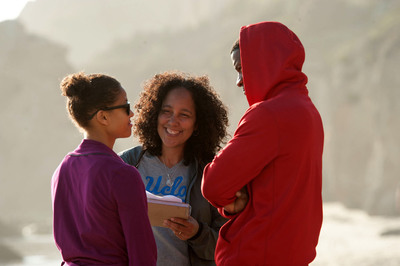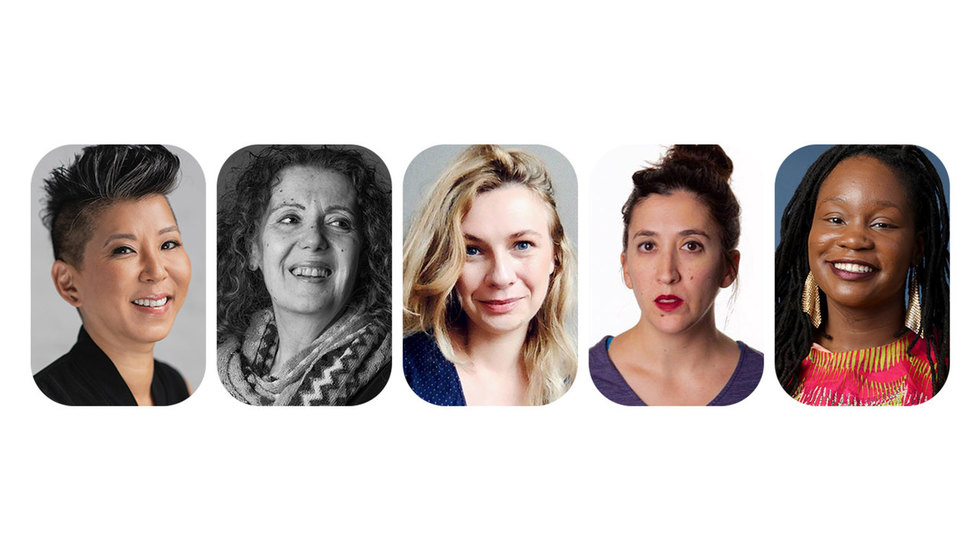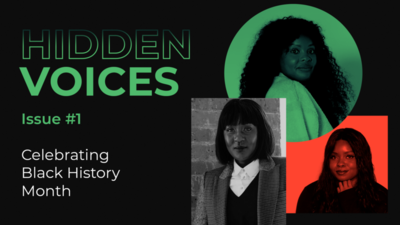
BY VINAY UMAPATHY |
HIDDEN VOICES, Issue #2: Women’s History Month
Meet the Women Leading the Way at Tribeca

Entertainment has long been a boys club, with women struggling against wage gaps, workplace inequity, and harassment. That isn’t even to mention the added discrimination faced by women of color that more than often goes unspoken. But with the help of dedicated programmers like Casey Baltes, Sharon Badal, Ana Brzezińska, Liza Domnitz, and Faridah Gbadamosi, Tribeca has provided a space for women to share their unique stories with the world.
Of course, the road to equality is far from over. "There’s a simple and devastatingly true fact that women have been discriminated against and oppressed by regimes, religions, and male-dominated political systems not for hundreds but for thousands of years.” Brzezińska acknowledges, continuing that "having financial and social independence still comes to most women at the cost of risking their lives, mental and physical health, family relationships and social position.” Within the microcosm of the entertainment industry, this issue is magnified, where the opportunities and pay afforded to women pale in comparison to what their average male equivalent gets. Despite this, Brzezińska admits that she still “prioritizes the quality and impact of someone’s work, regardless of the person’s role, background or gender,” though instinctually “feeling a deep connection and solidarity with people who had to make a significant effort to get to where they are to make their voice heard,” especially women.
It’s the tireless efforts and fiery passion our programmers have for platforming marginalized voices that set them apart from other programmers in the industry. Faridah Gbadamosi states, "One of the best parts of programming is being in a position to highlight historically excluded voices." Domnitz, co-head of the Tribeca Creators Market, a three-day event during the Festival that invites a curated group of artists to pitch their latest work to a wide array of industries shares the sentiment. "It’s an honor to provide women an opportunity to help their stories find a path to fruition," she says, with it being a privilege to “meet so many creative women as they are beginning their careers in storytelling.”
Our programmers also often make their mark by poking around in niche corners of the industry, seeking out the hidden amongst the underrepresented. Casey Baltes has her eye out for a unique kind of storyteller, those who don’t restrict themselves to one medium, and unite the gap between different forms of storytelling, particularly between filmmaking and the gaming industry. “Bridging both the film and games industry to bring games technology to female filmmakers”, Baltes says brings more opportunities to women creators as a whole, let alone “highlighting many incredible women in the games industry through our selection and jury”.
Being genuinely invested in the filmmakers and providing them with thoughtful, personal feedback plays into our programmers’ unique approach, as well. Focusing on a filmmaker's strengths rather than their weaknesses is also crucial to cultivating their talent. As Sharon Badal, film programmer, and professor at NYU suggests, "try to be encouraging, not discouraging” when working with filmmakers. She contends that pointing out their strengths help creators build confidence and empower them to push their creative boundaries and explore new territories, progressing the industry as a whole. It also helps to be real with filmmakers. Badal says whether it's giving feedback on a script, notes on a rough cut, or festival strategy for a completed film, "the conversation to be honest, thoughtful and most importantly, kind. Creativity is personal.”
The passion of programmers like Casey Baltes, Sharon Badal, Ana Brzezińska, Liza Domnitz, and Faridah Gbadamosi is paving the way for marginalized voices to be heard. These trailblazers are empowering women to push their creative boundaries and explore new territories in storytelling. To hear more Hidden Voices, click here.
Follow our instagram (@Tribeca) for more from Tribeca storytellers
Sign up for our newsletter to hear more from Tribeca storytellers

